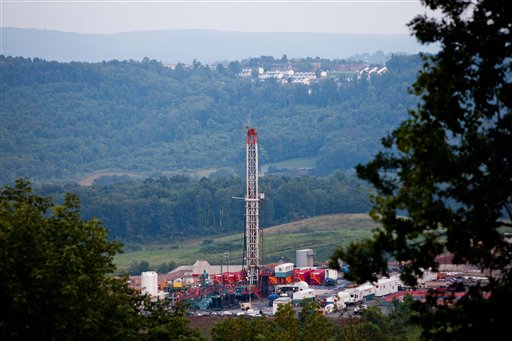The United States was the world’s top petroleum producer in April, according to recently released federal data, marking six straight months of dominance in the market that experts attribute to the ongoing shale oil boom.
Those experts say that the data point to a new era of energy abundance, undercutting long-held theories that oil shortages would force the United States to seek other means of energy production.
According to data released this week by the Energy Information Administration (EIA), the U.S. produced 12.09 million barrels per day (mbpd) of petroleum in April. That outpaced Saudi Arabia, which produced 11.2 mbpd that month.
It marked the sixth straight month for the U.S. as the world’s leading petroleum producer. The trend began in November of last year.
Mark Perry, an economics and finance professor at the University of Michigan-Flint, noted that EIA data showed that the United States in April produced more petroleum than all countries in Europe, Central America, and South America combined.
"This is more evidence that America’s shale energy revolution is taking us from ‘resource scarcity’ to a new era of ‘resource abundance,’" Perry wrote on the American Enterprise Institute website, where he is a scholar.
"This energy bonanza in the U.S. … would have been largely unthinkable even five years ago," Perry explained. "But then thanks to revolutionary drilling techniques developed by America’s ‘petropreneurs’ like George P. Mitchell, we’ve unlocked vast oceans of shale oil and gas across the U.S."
Mitchell, who died of natural causes at age 94 last week, pioneered the revolutionary oil and gas extraction technique known as hydraulic fracturing, which experts credit with unlocking massive reserves of oil and gas deposits in shale formations around the country.
Despite the economic benefits brought on by the technology, environmentalists have vociferously opposed hydraulic fracturing, also known as "fracking." Many have relied on factual misstatements or outright falsehoods to support their case against the practice.
"Opponents of hydraulic fracturing are never forced to answer a simple question: Why do they oppose a process that’s decreasing our reliance on foreign sources of energy?" said Steve Everley, a spokesman for Energy In Depth, a program of the Independent Petroleum Association of America.
The facts highlighted by the most recent EIA data, Everley said, "unquestionably [represent] a positive development for the United States, and it’s in addition to the millions of jobs and cleaner air we’re all currently enjoying as a result of technologies like hydraulic fracturing."
OPEC member nations, including Saudi Arabia, have raised concerns about the consequences of American oil dominance that has resulted from the country’s greater use of hydraulic fracturing.
Saudi Prince Alwaleed bin Talal recently warned that the abundance of shale oil and gas in the United States threatens the Saudi economy, which relies in large measure on its large oil reserves.
Beyond overtaking Saudi Arabia, Everley noted, the shale oil boom appears to have rendered moot concerns about depleting reserves of oil. "North American shale has put the final, merciful nail in the coffin for peak oil theory," Everley said.
